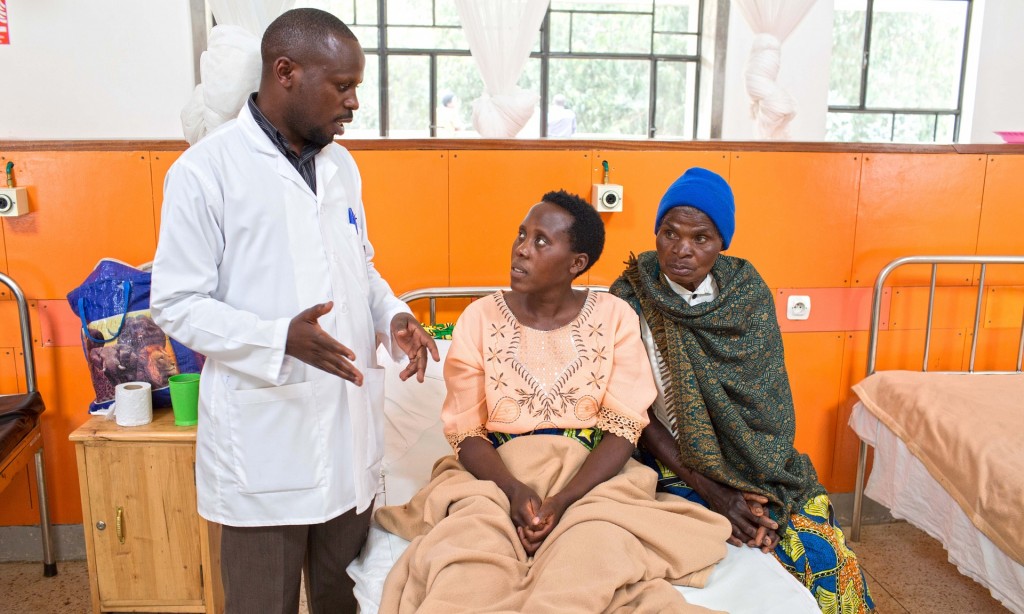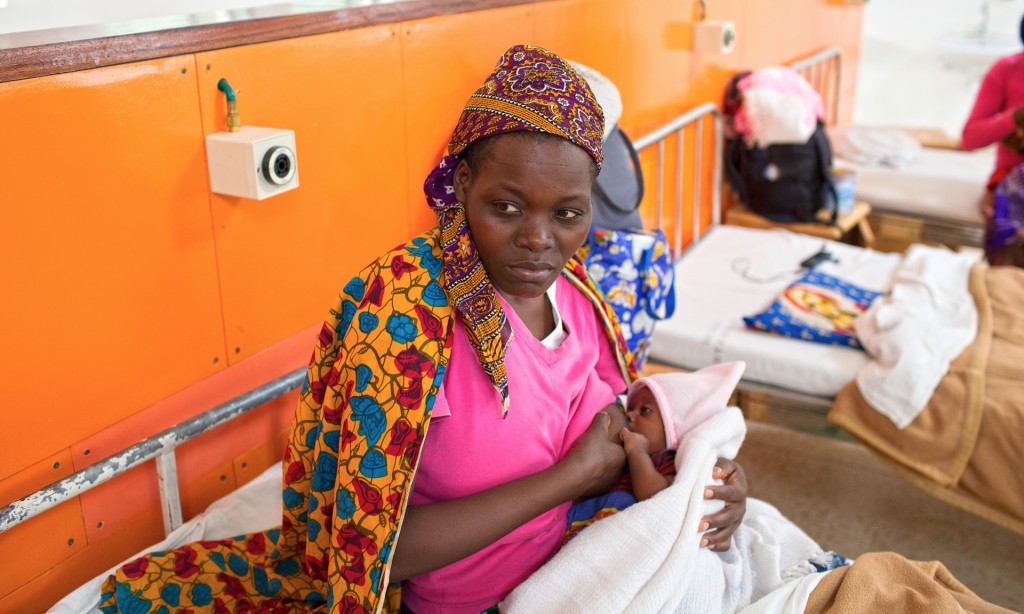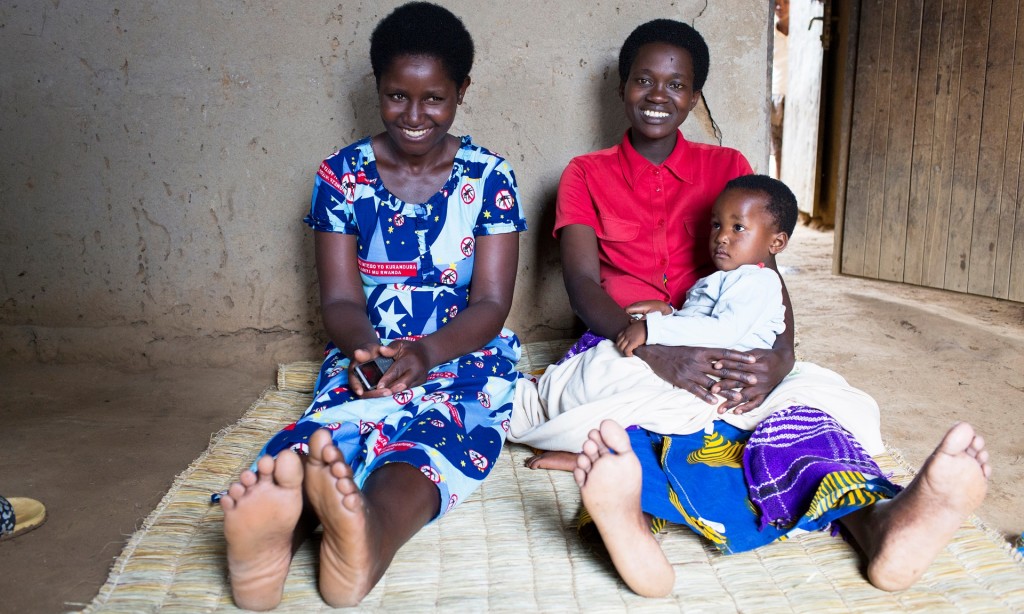When a woman goes into labour, Liberata Musabyimana always accompanies her on the walk to the health centre. Sometimes the knock on Musabyimana’s door comes in the middle of the night announcing a baby is due. Or the birth is so swift there is no time to reach the clinic. Instead, the 35-year-old farmer must act as midwife as happened recently.
“It was 10pm and the baby came so quickly it was born by the roadside,” recalls Musabyimana, who lives in Rwanda’s rural eastern province. “The mother-in-law cut the umbilical cord then someone arrived on a motorbike and drove the little one off to the centre.” Nine months on, both baby and 40-year-old mother are thriving.
Musabyimana is one of this east African country’s 45,000 community health workers (CHW), including 15,000 dedicated to improving maternity support, who are helping transform healthcare. Elected by village committee, these volunteers have contributed significantly to Rwanda’s progress in reducing the deaths of mothers and young children. Between 2000 and 2015, this country of just under 12 million people achieved the highest average annual reduction in both the under-five mortality rate and the maternal mortality ratio in the world. The UN estimates 590,000 children have been saved, with child deaths now at 42 per 1,000 births compared with 300 in 1994. The figure for maternal deaths is 210 per 10,000, around a fifth of the rate in 2000.
Behind this success is RapidSMS, a simple mobile phone and data collection system used by CHWs to monitor pregnant women and newborns. Since being piloted by the health ministry in 2009, the text messaging system has gone through several upgrades and now enables healthcare workers to track child nutrition as well as analyse maternal deaths. Rwanda’s health minister, Dr Agnes Binagwaho, says: “We still have unnecessary deaths but RapidSMS makes it easier for us to support pregnancy. It’s about having a tool linking people with knowledge – we bring these skills to the mother.”
This is how RapidSMS works: each CSW, who must be able to read and write, lists the women of childbearing age (15-49) in their village, then recommends that those showing signs of pregnancy visit the health centre. Once a pregnancy is confirmed, the CHW texts the mother-to-be’s details including weight, previous pregnancies and check-up dates to a central database where staff create an individual record that all healthcare professionals can share. When check-ups are due, the system messages the CHW who visits the mother and reminds her to attend.
CHWs are not medical experts. They have been educated to primary or secondary school level and receive only basic training in maternity support such as how to identify at-risk mothers. Instead, their role is to be the eyes and ears for doctors by referring on health issues such as early bleeding via RapidSMS. This is done using acronyms – for example, RED means high risk and EAR is red alert. A few weeks before a due date, the CHW receives a reminder, then encourages their patient to contact them the moment labour pains start.

Before RapidSMS, women from poor communities would give birth at home without medical support. Mothers frequently bled to death after birth, a tragedy easily prevented with hospital care. Fortunee Uwantege, a community health manager, says mothers who did make it to hospital arrived late, therefore placing a strain on doctors and nurses unprepared for their arrival. “RapidSMS has improved the situation greatly because more women deliver at health clinics – they’re only transferred to a district hospital if complications occur. Everyone involved in her pregnancy is informed and there are less delays – it’s saving lives.”
Jean Baptiste Byiringiro is the IT manager responsible for RapidSMS, whose goal is helping “every single pregnant woman.” There are challenges, he acknowledges, such as women refusing to take part, the lack of electricity for charging mobiles in some parts of Rwanda (solar panels are being provided) and accessing health clinics, which can be a five kilometre walk away. However, he points out, RapidSMS has “saved many mothers from bleeding to death”. He adds: “I feel proud of what we’ve achieved.”
Aaron Oxley, executive director of Results, an NGO campaigning to end extreme poverty, says innovative initiatives such as RapidSMS are the result of strong political leadership on health and a system that is “most responsive to the priorities of the people, starting with a strong, well-staffed health system”.

Musabyimana has been a CHW for the past two years. Although unpaid, she shares any performance-related remuneration with local cooperative members. A short drive from Musabyimana lives Zeburiya Niyonshima, 31, who is eight months pregnant with her third child and has been suffering nosebleeds. “I’ve felt quite weak,” says Niyonshima. “But I know I could contact Musabyimana – she’s a friend and I trust her. Before, it was hard having just my mother and neighbours for support.’ Musabyimana has also been teaching Niyonshima about being a good mother with the help of laminated photographs that show women breastfeeding and hanging mosquito nets over a cot.
The women who Musabyimana has supported call her doctor, something she dreams of being one day. She says she gets excited every time a baby is born – even when it means despatching the newborn to a clinic on a motorbike.


